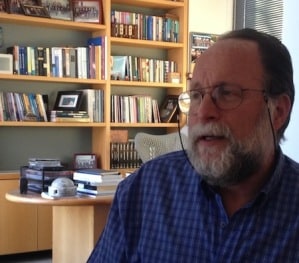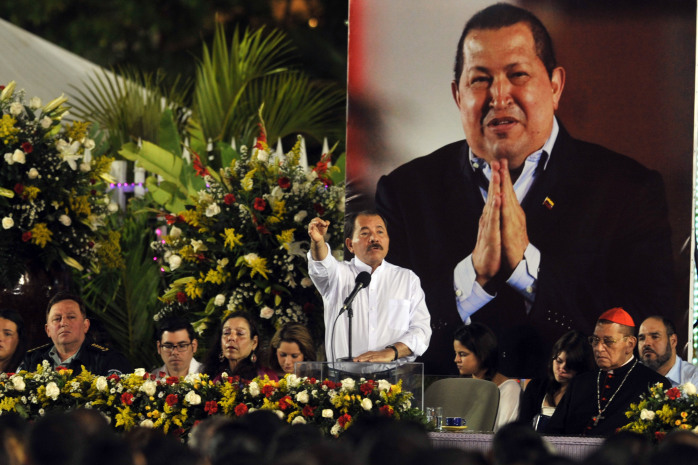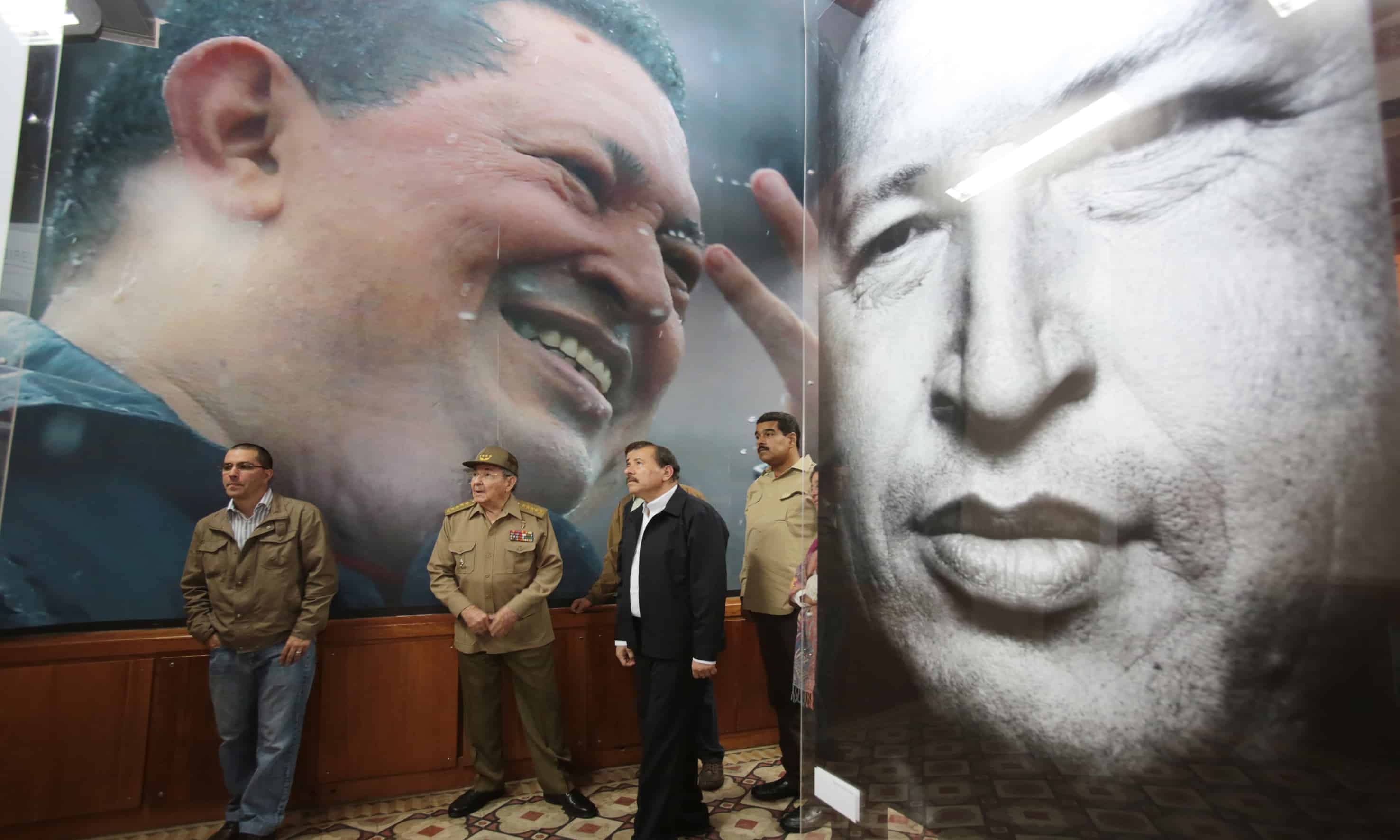The following article first appeared in The Nicaragua Dispatch. It is reprinted here with permission. Support the Dispatch’s efforts at brining independent journalism to Nicaragua and beyond by clicking on the original story here.
As Sandinista faithful mobilized in the streets of Managua Wednesday to pay homage to the late Venezuelan President Hugo Chávez on the one-year anniversary of his death, Nicaraguan and Venezuelan analysts predict the international project he started won’t outlive its founder for much longer.
Nicaraguan President Daniel Ortega, who traveled this week to Venezuela to pay official tribute to his former benefactor, honored Chávez as a revolutionary who “fought for the people, fought for America, fought for humanity, fought for peace and fought for justice.”
Prior to leaving for the airport, Ortega said that now, more than ever, countries belonging to the alliance created by Chávez will “continue to fight for peace, for justice, for liberty and for the sovereignty of our people.”
But just a year after the loss of Chávez’s charismatic leadership, and amid the ruin of Venezuela’s economy, the Bolivarian Alliance for Our Americas (ALBA) – Chávez’s brainchild for regional integration – appears to be collapsing under the weight of its own ambition.
And some economists warn that the unraveling of ALBA could be devastating for Nicaragua’s economy.
“I think that ALBA has all the likelihood of bankrupting Nicaragua,” economist Ricardo Hausmann, director of Harvard’s Center for International Development and former minister of planning in Venezuela, told The Nicaragua Dispatch.
Recommended: He’s alive! Nicaragua’s Ortega, out of sight for days, reappears as if nothing had happened
Though Nicaraguan exports to Venezuela grew by a whopping 7,000 percent during the first six years of ALBA (from $6.2 million in 2007 to $437 million in 2012), it was growth based on a “an artificial market,” Hausmann said, and that “artificial market is in the process of collapsing.”

In addition to nearly 60 percent inflation, basic shortages, an underperforming oil industry, and a runaway black market, Venezuela is accumulating billions of dollars in new debt for unpaid imports.
“Venezuela has arrears to the tune of $56 billion in unpaid bills; that includes all the imports that Venezuela has done in the past eight months, which have not been paid,” Hausmann said. In addition, Venezuela owes $3.5 billion to airline companies.
Chávez’s vision of a socialist alliance in the Americas might not disappear overnight, but ALBA’s fate is not looking good, the expert said.
“ALBA is not an economic system; it’s a preferential agreement for Venezuela to buy stuff from its friends. Venezuela is buying less and less; it’s collapsing,” Hausmann said. “It owes too much money to too many people, and it’s going to default on many people; so it’s not an exactly super sexy market to be tied to.”
Indeed, the decline of ALBA has come faster than many would have guessed. After six years of steady trade growth under Chávez, Nicaragua’s exports to Venezuela dropped by $31.7 million last year, according to Nicaraguan government figures.
Nicaragua’s oil imports from Venezuela continued to increase, but Nicaragua is a paying customer. Venezuela, on the other hand, increasingly is not.
“The Venezuelan market is a temporary thing; it is already shrinking and it won’t be there [forever], so smart Nicaraguans are not going to want to bet on that horse,” Hausmann said, adding that Nicaraguan exporters who currently are owed money from Venezuela will probably not get paid.
On the other hand, Hausmann noted, Nicaragua was smart to not abandon its free trade agreements with the U.S. and other countries. The United States remains Nicaragua’s main trading partner, purchasing $592 million in Nicaraguan exports last year — nearly $200 million more than Venezuela purchased.
“Nicaragua has all the disciplines of a free trade agreement, so from a business point of view it’s a much more open economy. There is a part of Nicaragua that has a set of economic rules that is infinitely healthier than those of Venezuela,” Hausmann said.

The challenge for Nicaragua will be to make sure its exports meet the stricter standards of quality required by other countries, so they can find new markets when Venezuela ceases to be a viable option. Even if the South American oil giant can pull it together economically, any political change of the guard in Venezuela would most likely end Nicaragua’s sweetheart trade deals.
“The likelihood that the politically allocated market shares that Nicaragua has in that market are going to survive [a political change] is very unlikely,” Hausmann said.
Nicaraguan economist Francisco Aguirre is also skeptical about the future of ALBA. He says the unsustainable nature of the project was baked in from the beginning.
“With or without Chávez, ALBA — as originally conceived — was not sustainable,” Aguirre said. “Although Venezuela is potentially a very wealthy nation with the world’s largest petroleum reserves, Chávez also espoused what he called XXI Century Socialism, which was one part populism, a second part economic mismanagement, and a third part corruption.”
Ortega, however, is more savvy than Chávez was, Aguirre said. Wisely, the Nicaraguan president never jumped into XXI Century Socialism with both feet.
“Daniel Ortega milked the Venezuelan cash cow while he could, but he’s smart and experienced, so he’s aware that Venezuela’s ‘aid’ to Nicaragua is diminishing; hence his rush to firm up special relations with other nontraditional donors such as Russia,” Aguirre said.
Ortega’s challenge moving forward, the economist noted, will be finding a way to manage Nicaraguans’ expectations and keep his grip on power amid a deceleration of economic growth due to lower commodity prices and the diminishing role of Venezuelan largess.
A $40 billion Chinese canal, perhaps?






